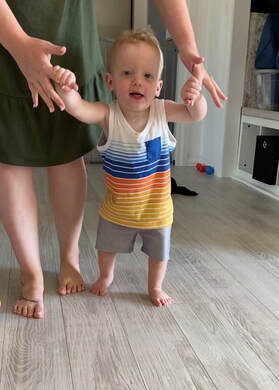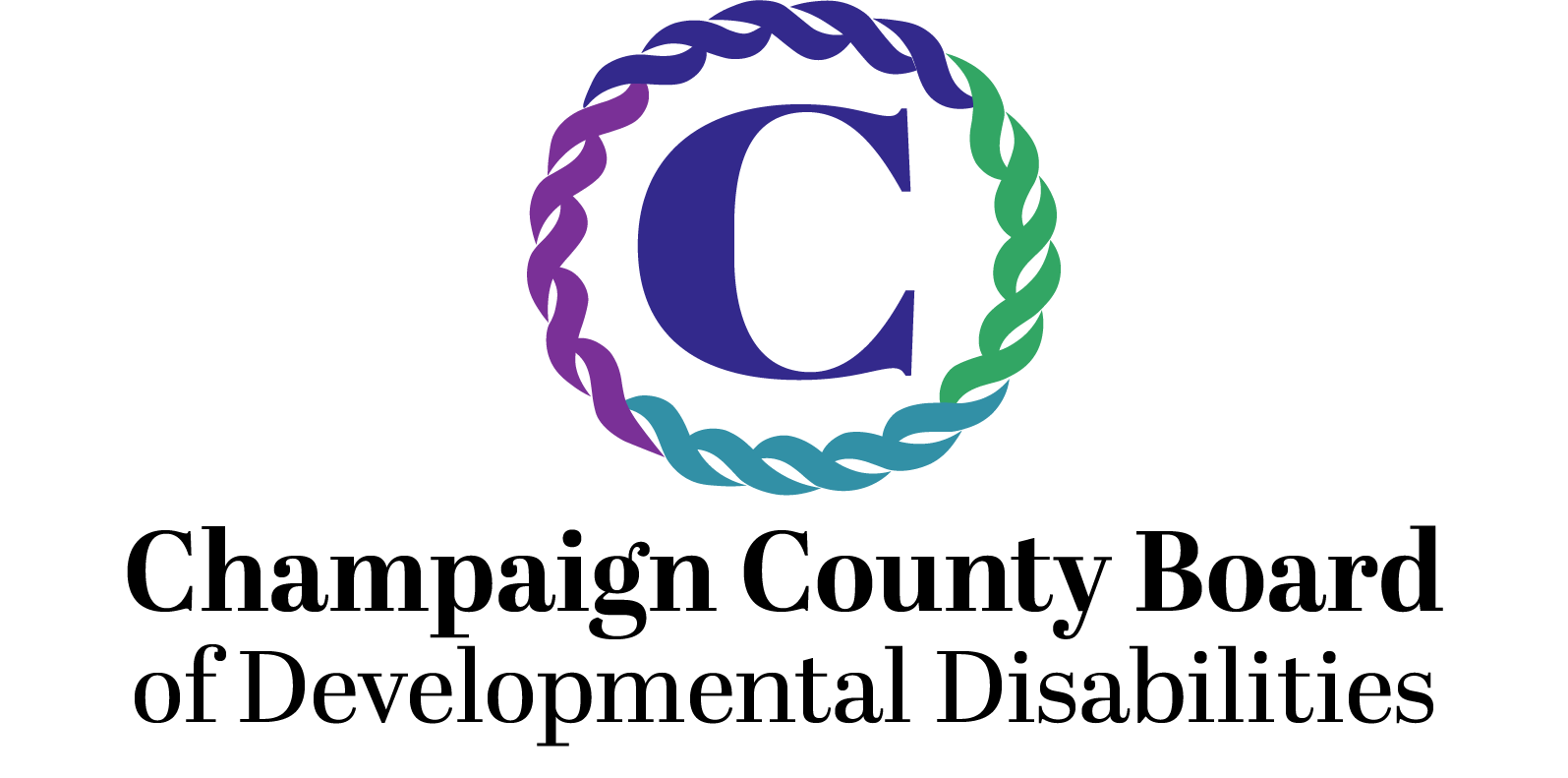Early Intervention serves qualifying children from 0-3 yrs of age.
It provides intervention in everyday routines, activities, and places.
|
When children are growing and developing, but not hitting expected milestones, it can be challenging and scary for parents and caregivers. The Champaign County Early Intervention team will work with parents and caregivers to provide interventions that can help a child develop the skills needed to reach these milestones.
The Early Intervention team will evaluate, plan, and provide support for parents and caregivers, in order to help children from birth to age three acquire the skills needed to meet developmental milestones. Services are provided to families with a child who is eligible. Eligibility is based on an identified developmental delay or a qualifying medical diagnosis. |
What to expect with Early Intervention services
Champaign County Board of Developmental Disabilities Early Intervention Program is part of Ohio’s Early Intervention Initiative; therefore, all children served by the Early Intervention Program are first referred to the Ohio Early Intervention Central Intake and Referral System.
When a referral is made to Ohio Early Intervention, the family is assigned an Early Intervention Service Coordinator. A home visit is scheduled to discuss the family’s concerns and to complete screenings that address nutrition, vision, hearing, and development. Following the screenings, the child may be referred, if warranted, to the Champaign County Board of Developmental Disabilities Early Intervention Program for further evaluation and assessment and possible enrollment.
Evaluation and assessment of the child occurs in their own environment: your home, a caregiver’s home, or a daycare. If we determine that a delay does exist and there is a need for services, your child will be enrolled in the Early Intervention Program.
When a child is enrolled in the Early Intervention Program, we will provide year-round services in the child’s natural environment. Every family will receive the support of a Primary Service Provider (PSP) who may be a developmental specialist, physical therapist, occupational therapist, or speech and language pathologist. The PSP will work with the family to address the concerns and needs of the child and develop interventions the family can incorporate into their daily routines.
When a referral is made to Ohio Early Intervention, the family is assigned an Early Intervention Service Coordinator. A home visit is scheduled to discuss the family’s concerns and to complete screenings that address nutrition, vision, hearing, and development. Following the screenings, the child may be referred, if warranted, to the Champaign County Board of Developmental Disabilities Early Intervention Program for further evaluation and assessment and possible enrollment.
Evaluation and assessment of the child occurs in their own environment: your home, a caregiver’s home, or a daycare. If we determine that a delay does exist and there is a need for services, your child will be enrolled in the Early Intervention Program.
When a child is enrolled in the Early Intervention Program, we will provide year-round services in the child’s natural environment. Every family will receive the support of a Primary Service Provider (PSP) who may be a developmental specialist, physical therapist, occupational therapist, or speech and language pathologist. The PSP will work with the family to address the concerns and needs of the child and develop interventions the family can incorporate into their daily routines.
|
|
Services provided by the Early Intervention program may include:
|
Early Intervention Specialties
The Early Intervention team is dedicated to your child and family and providing you with interventions you can incorporate into your daily routines to help your child learn, grow, and develop new skills. Depending on which skills your child is developing, you may work with any of the following specialists.
Developmental Specialist
A Developmental Specialist works with the family in all areas of development: communication, physical (fine motor and gross motor), adaptive, cognitive, and social/emotional.
Speech and Language Pathologist
The Speech and Language Pathologist works with the family to help their child become a more effective communicator. A delay can occur in a child’s receptive and/or expressive communication development. Receptive communication is how a child hears, processes, and responds to what has been communicated. Expressive communication is how a child communicates with their world, letting others know what their needs and wants are. Expressive communication can be non-verbal (for example sign language, gestures, or pictures) or verbal (using sounds or words).
Occupational Therapist
The Occupational Therapist works with the family to help their child develop their fine motor skills. A delay in fine motor development in Early Intervention is identified by a child needing support learning how to use their smaller muscles, such as the muscles in their hands, fingers, and wrists. Fine motor development is important for children as they get older to learn to write, button clothing, turn pages of a book, and eat (just to name a few skills)! The Occupational Therapist may also work with the family on sensory integration and self-help/adaptive skills development.
Physical Therapist
The Physical Therapist works with the family when a child exhibits a delay in their gross motor development. Gross motor development are skills that require the use of larger muscles in the legs, arms, and torso. Gross motor skills include: rolling from back to belly and from belly to back, sitting independently, pulling to stand, cruising, crawling, walking, and running.
|
|
If you’re concerned and feel your child isn’t hitting their milestones, we can help. For more information contact the Early Intervention Department at (937) 653-5217. |





